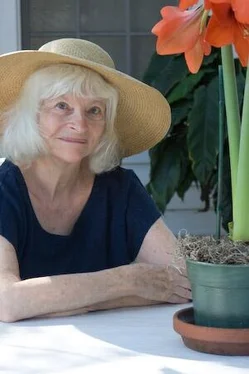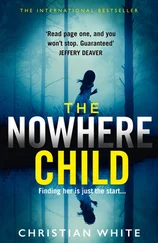What to tell Katherine? Well, he could say something about a special project at N.R.D.C. A rush job, so he had to go in on Friday. She would believe it, because she had no idea of the real situation. In fact, no one at Nutting ever asked him to do anything. Executives from the top offices came by sometimes with visitors and he was introduced as a Harvard historian who was writing the history of the company. Even that wasn’t true yet. He was trying to write it, but the trouble was he still couldn’t find the data he needed in all those piles of paper on his desk: the basic facts and figures like the names of the original stockholders and the size of their investments. And nobody seemed to have the time to help him. They didn’t care about the past: they were only interested in the present and the immediate future.
“So why worry?” Fred Skinner had said. “You’re pulling down your salary.” Katherine would have understood why he worried, but since Katherine already despised Nutting, he hadn’t told her. Which as it now turned out was just as well.
Only he would be crazy to get mixed up with a girl like Ceci. She was unbalanced; must be. A nymphomaniac, a kleptomaniac; a psychopathic personality. She was very pretty; beautiful. Her hair, breasts. Probably she slept with everybody she knew. She might even have something catching. It would be crazy to go back there on Friday.
Paul started down the other side of the hill into Mar Vista, and the sun set behind him; the rosy flush on the stucco dimmed, the smog among the palm trees in the middle distance turned from blue to gray. On his street, the outlines of the houses were beginning to blur, and the colors of the flowers shone softly: great white roses, yellow chrysanthemums, and many more that he could not name, fantastic in shape and color.
He had suggested to Katherine that she might find out something about these flowers. She had always liked that sort of thing: when they visited in the country in New England, she would come in from a solitary walk on the coldest, wettest day with a handful of damp leaves or twigs in bud, crying out their names with joy. Why shouldn’t she take an interest in the local vegetation? There must be hundreds of new plants here. So he had thought and said, but to no use.
Their lawn was as green now as the neighbors’, Paul thought as he pulled into the driveway. Green, lush, long—in fact, it needed to be mowed again. And it was getting into the flowerbeds, he noticed as he crossed the yard. Long runners of grass had leapt the trench between lawn and garden and were spreading spiderlike towards the house. What was more, as if in reprisal the flowers were getting into the grass: white flecks of alyssum spotted the lawn, and some heliconia had sprouted near the front door, breaking the ground like moles. He should cut and weed at once; it was too late tonight, but he would have plenty of time over the weekend, if he didn’t go to Venice.
The house was dark. “Katherine?” he called, and walked through to the kitchen, turning on lights as he went. Katherine’s kitchen was as clean and tidy as an office, unadorned except for an engagement calendar and a shelf of herbs. The pots and pans that should have held his supper hung on the wall, their copper bottoms shining.
Paul went into the bedroom. The blinds were drawn down, and his wife was lying in bed in the dark.
“Hello!” he said.
His wife groaned, or sighed.
“It’s late. Don’t you want to get up?”
Katherine heaved herself up in bed, a white shape lit vaguely from the hall. She was wearing a cotton flannel nightgown with flannel ruffles. Paul raised the Venetian blind. It clattered up over a view of Los Angeles evening: a smoky dark blue mist decorated with blurred lights—red, white, green. The branches and leaves of the peach tree outside the window were close and black. Above, hazy blades of searchlights crossed and recrossed the sky. It was spectacularly fine, Paul thought, and was going to say so, when Katherine remarked flatly:
“Hell. That’s what it looks like: hell.” She sat up, the sheets twisted round her shoulders. Paul looked at her, and found her not attractive. Maybe his standards of comparison had changed—the good-looking girls here were all deeply sun-tanned, outdoor types, glowing with light and life. Or maybe she had changed. But anyhow, it was as if the pale flame that had burned so steadily in the gray, damp New England air had become invisible—extinguished in a blaze of sun.
“I suppose you want something to eat,” Katherine added.
“Well, I was thinking of it,” Paul said. “Aren’t you hungry?”
“No.”
“Do you have sinus again?”
“Yes.”
A moment of nothing to say followed. Paul looked at Katherine; Katherine looked at the floor.
“I’m sorry, I simply don’t feel up to cooking,” she said finally.
“That’s all right. I’ll find something in the icebox.”
“There isn’t anything in the icebox, really. I meant to go to the store today, but I didn’t feel up to it. ... Why don’t you go out and get something, and I’ll try to sleep. I’ve been trying for hours, and I’d just dropped off when you woke me up. It really wasn’t very considerate of you.”
“Well, it wasn’t very considerate of you not to get anything for supper,” Paul said, in what he intended for a humorous tone.
“If you had any idea of how I feel,” Katherine said, not humorously, “you wouldn’t ask me to get up and cook. I’m so dizzy, and I have pains shooting through my head like long needles. All through my head. Or maybe you would ask me, I don’t know,” she concluded in a dull shrewish voice.
“I’m sorry,” Paul said flatly. Katherine might have managed to buy him a pound of hamburger, considering that she had practically nothing to do all day. Which was probably part of her trouble.
“Oh, by the way,” he said. “Did you call up U.C.L.A. yet? Skinner asked me about it, you know.”
“I know.” Katherine raised her eyes briefly. She was suspicious of Fred Skinner: she would not believe that he had thought she had been “really great” at his party; she was convinced that he had deliberately tried to make her drunk out of boorish malice. Suspecting some similar trick, perhaps, she kept putting off investigating an apparently good job he had heard about at U.C.L.A. “Susy called today. She wants us to go to the beach with them and some friends on Friday. I said I didn’t know. I really don’t want to go, but I thought you might.”
It occurred to Paul that going to the beach with the Skinners would prevent him from being crazy enough to see Ceci O’Connor again, so perhaps it was a good idea. Besides, he had been trying for weeks to show Katherine the sea, the sun—“We ought to go,” he said. “It’s insulting to keep turning down invitations all the time. Fred and Susy will think you don’t want to see them.”
“I don’t want to see him, and I don’t want to go to the beach.” Katherine lay down again, pulling the sheet with her. She tugged it into position with weak gestures. “I don’t mind seeing her, but I can do that any time.”
“You should go. Maybe you’ll be feeling all right by then. You haven’t been to the beach at all yet.”
“If I feel all right, I’ll have better things to do than go and sit in the dirty sand with a crowd of vulgar people.” Katherine half sat up, twitched the blanket over herself, and fell back. “Would you mind putting the blind down again?” Paul looked at her; then he looked for the cord of the Venetian blind, and let it down. “Thank you. Why don’t you go by yourself if you want to?” she added.
“I can’t,” Paul said. “I have to go back to the office on Friday. I have to finish a special project.”
Читать дальше












